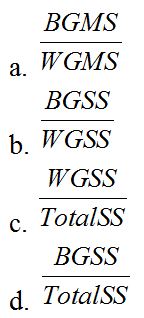The fundamental premise of internal family systems include all of the following EXCEPT?
A. Each person’s inner life has multiple parts that form a system that functions like a family system.
B. Each person’s inner world is characterized as having various parts that interrelate as a coherent system with the same dynamics one would see in a family.
C. When people experience trauma, family imbalance, or polarized relationships, their inner system of parts takes on mild roles to cope with added stressors.
D. Each person has a Self — that is its core and distinct from its parts — that has vision, compassion, and confidence. The goal of therapy is to have this Self provide inner leadership to the various parts.
Answer: C. When people experience trauma, family imbalance, or polarized relationships, their inner system of parts takes on mild roles to cope with added stressors.
You might also like to view...
The _______ approach is largely philosophical and asserts that career is a growing experience, rather than a linear contrivance separate from life
a. Krumboltz b. Super c. Miller-Tideman d. Holland e. Bandura
What is the null hypothesis for the Kruskal-Wallace procedure?

The period of time when the client and helper negotiate the end to the therapeutic relationship is
A. closure. B. termination. C. goal attainment. D. awareness.
Clients often carry a fantasy that there may be some way for all to “get on the same page” so they will not have to manage the differences that create relational anxiety.
a. true b. false